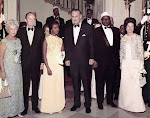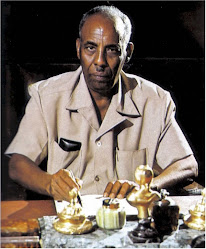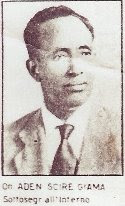Breaking News; Al Qaeda-linked Islamist terror group al-Shabaab has abandoned Mogadish/Somali -American From Ohio General abdulkadir Sheikh ali Dini Commander of Somali Army force confirm the situation on the ground to terror free somalia..Mogadishu is out of Al-Shabab hands.Shabab Concede Control of Capital to Somalia Government

NAIROBI, Kenya — The Shabab Islamist rebels abruptly pulled out of the bullet-ridden capital of Somalia on Saturday, leaving the entire city in the hands of the government for the first time in years and raising hopes that aid groups could now deliver aid to more famine victims unfettered. Witnesses described truckloads of heavily armed Shabab fighters driving away under the cover of darkness and the beleaguered residents of the capital, Mogadishu, pouring into the streets to cheer and jeer their departure. “We have been dreaming of this day for the last three years,” said Abdiweli Mohamed Ali, Somalia’s new, Harvard-educated prime minister. The Shabab’s notoriously brutal brand of Islamism had tormented Mogadishu residents for years, but more recently the rebels have also blocked many international relief groups from bringing food to victims of the famine that swept southern Somalia this summer. Aid groups hope that the Shabab retreat will allow them access to more parts of Mogadishu, where more than 100,000 famine victims are waiting for help. But the Shabab still control large parts of southern Somalia that have been the worst hit by drought and famine, and it is not clear when Western aid groups will be able to get into these areas.The famine represents the most serious crisis Somalia has faced since the central government collapsed in 1991 and plunged the country into chaos. United Nations officials estimate that tens of thousands of Somalis have died, and that more than half a million children are on the brink of starvation. The rebels said Saturday that they had “completely vacated Mogadishu for tactical purposes,” according to Ali Mohamud Rage, a Shabab spokesman. He said that the Shabab would change their strategy to “hit-and-run attacks.” “We will be back soon,” he warned. The Shabab, who have pledged allegiance to Al Qaeda, has imposed a brutal reign in areas they control, chopping off hands of petty thieves, lashing women for showing their ankles and beheading anyone deemed a spy. They also banned music, television, gold teeth and bras, branding them un-Islamic. But in the past few months, the Shabab have taken a beating in steady urban fighting against a better-armed, 9,000-strong African Union peacekeeping force. Many analysts have said the Shabab were growing weaker by the day, riven by infighting and nearly out of cash. The rebels have also been divided over whether to let in Western aid organizations to relieve the famine. As the toll continues to mount, pressure has built on Shabab leaders, especially those with connections to local clans. The Shabab have also blocked starving people from leaving their territory and have even set up a displaced persons camp about 25 miles from Mogadishu where families are essentially imprisoned. Those who have escaped have painted a bleak picture of entire villages emptied by famine.
The rebels’ departure from the capital offers no guarantee that Somalia’s weak transitional government, which has let innumerable other opportunities slip through its fingers, will be able to gain control of Mogadishu, or that the city’s population will rally behind the government. The Transitional Federal Government has been propped up by millions of dollars of Western financing, including American military aid, but its leaders remain ineffectual, divided and by many accounts corrupt.
“Unfortunately, I entertain no delusions that the T.F.G. will rise to the occasion,” said J. Peter Pham, Africa director at the Atlantic Council, a Washington-based policy institute. “The only exploiting that will be taking place will be whatever schemes its ministers will hatch to profit from increased aid flows.”
As the nation faces one of the worst droughts in 60 years, many analysts are pessimistic that the government will be able to meet even the needs of the people in the capital. On Friday, government troops looted sacks of grain and killed several people during a riot over emergency food in a refugee camp. Not since 2007 has the government had such an opportunity to assert itself in Mogadishu. In late 2006, Ethiopian troops stormed into Somalia and pushed out a grass-roots Islamist movement that was ruling much of the country, and for a brief spell the transitional government was in control. But within months the Shabab were waging hit-and-run attacks, and by 2008, they had seized several towns across the country and neighborhoods in Mogadishu.
The Shabab have imported lethal Qaeda-like tactics to Somalia, including roadside bombs and suicide bombs. But Fazul Abdullah Mohamed, one of the key Shabab commanders and a wanted Qaeda agent, was recently killed in a shootout in Mogadishu, dealing the Shabab a serious setback. The United States has also inflicted casualties on the rebels in a recent drone attack. Mogadishu residents interviewed on Saturday were happy the Shabab were gone, but tentative about what it meant. “They were very oppressive,” said Mohamed Yare, who was arrested by the Shabab a week ago for talking about soccer. “But the government must come with policies to restore the security of the area abandoned by the Shabab, and if the government forces start looting cellphones and other properties,” which has happened before, “the Shabab might get a vacuum to return.” Major Paddy Ankunda, a spokesman for the African Union troops in Somalia, told Agence France-Presse that the peacekeepers were cautious “because it could be a trap,” and that it was possible that Shabab fighters had simply hidden in the city’s population. Until Saturday, the Shabab had controlled about a third of the capital, though their slice had diminished in recent months. Most of the famine refugees in the capital have been camping out in the government-controlled areas, not those the Shabab just left. Witnesses said Shabab fighters were heading south toward Merca, Brava and other towns under their control, and that the withdrawal seemed organized. In late 2006, the militant wing of the Islamist movement that had ruled Mogadishu made a similar escape, driving all the way to the Kenyan border, where it melted into the bush, only to regroup a few months later. Mogadishu residents said that emissaries of various warlords were beginning to identify bases in the neighborhoods that the Shabab had just vacated, which could spell another problem for the troubled governmentm NYT
About Us
The Foundation is dedicated to networking like-minded Somalis opposed to the terrorist insurgency that is plaguing our beloved homeland and informing the international public at large about what is really happening throughout the Horn of Africa region.





.jpg)











No comments:
Post a Comment